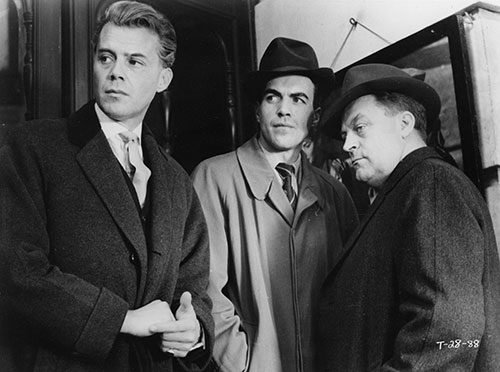One reason for seeking out Victim, a 1961 film on rerelease this week, is purely historical. It’s a strenuously well-meaning, often chewy, sometimes stilted drama about a plummy London barrister’s attempt to expose the criminals blackmailing a young gay man with whom he had a brief ‘association’. Victim is now remembered as one of the first British films to tackle explicitly the ‘issue’ of homosexuality, and at the time its polemic against the law outlawing gay sex – six years before the Sexual Offences Act, which partially decriminalised homosexual acts – was a bold move.
https://www.youtube.com/watch?v=NPXjIySzzC8
Still… I watched this film in the week of London’s Pride parade, and boy does it feel creaky. The passage of time does funny things to films that once seemed daring and urgent. We have to wait a good 25 minutes before the love that dare not speak its name is finally spoken out loud, and on those few other occasions when the word ‘homosexual’ is uttered it’s accorded a kind of hushed potency: like an unfortunate disease, the sufferers of which are to be pitied.
I guess there’s a quaint, time-capsule fascination to this. Over drinks our crusading barrister Melville Farr (Dirk Bogarde) discovers his colleague, an ennobled judge no less, is himself a gay man and subject to blackmail threats. “You’re a sophisticated man,” the good lord says with breezy equanimity: “You know the invert is part of nature. Sherry?”
The passage of time does funny things to films that once seemed daring and urgent.
“Invert”, “abnormal”; exhortations by medical professionals to gay men to change their ways and be “sensible” – Victim resounds with language that stigmatises gay identity as a problem, one to be dealt with sympathetically for sure but a problem nonetheless. Confused and patronising though it may be, however, there’s a campaigning social liberalism to Victim that I found moving.
The film is really an exposé of the way the law outlawing homosexuality leaves countless men open to blackmail. Its focus is on Farr, a married establishment figure who had a brief, unconsummated relationship with a young construction worker called Boy, evidence of which falls into the hands of a gang of disreputables. When Boy is caught stealing from his work to pay off blackmail demands, he commits suicide, which Farr, acting from a blend of guilt and moral rectitude, is determined to avenge. It’s a murky situation, and the film’s absorbing portrait of a world under the perpetual shadow of extortion and arrest has the rich intrigue of a good thriller: Victim appeals as a barometer of long-changed social attitudes but it also grips with muscular hold.










